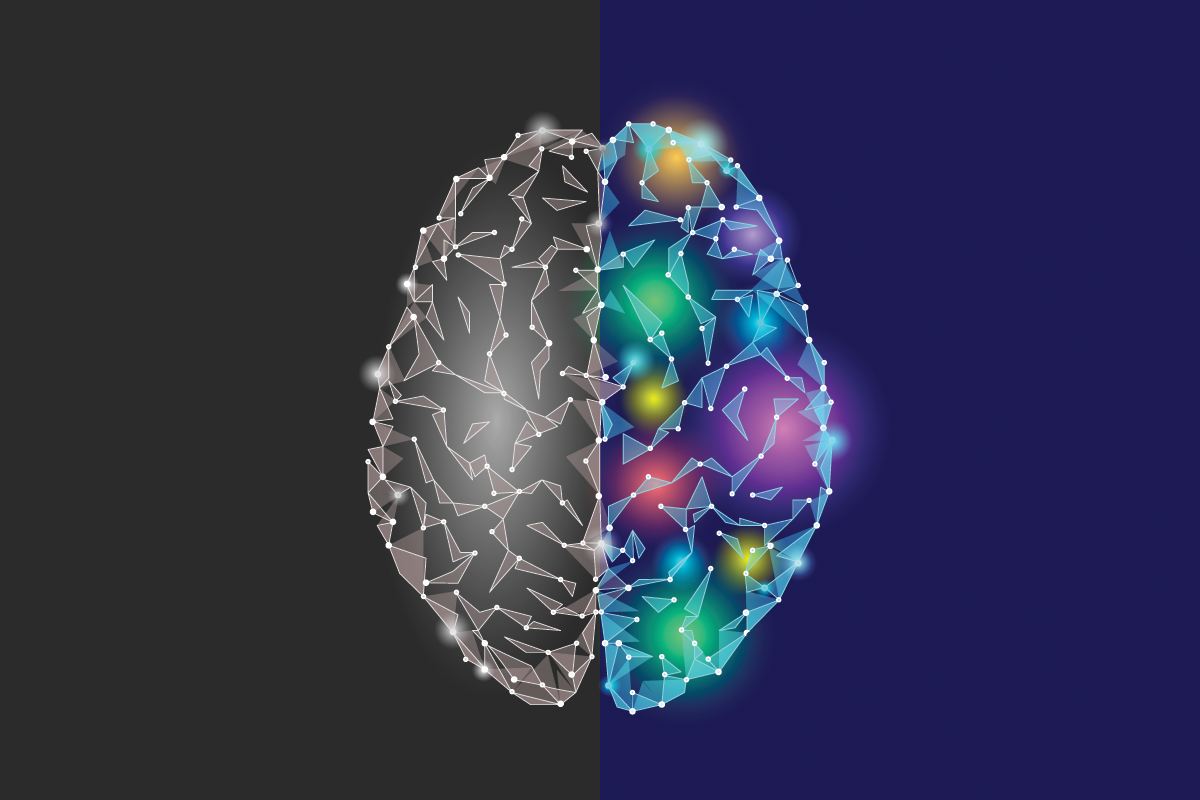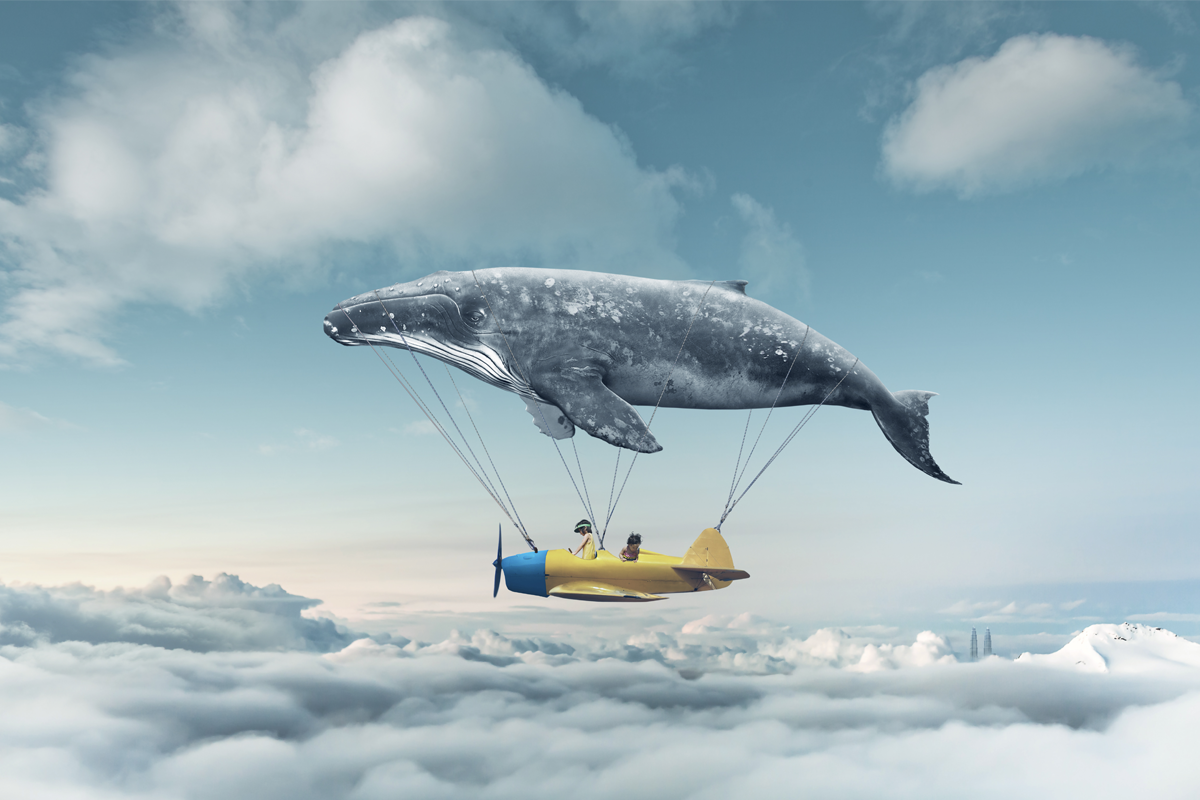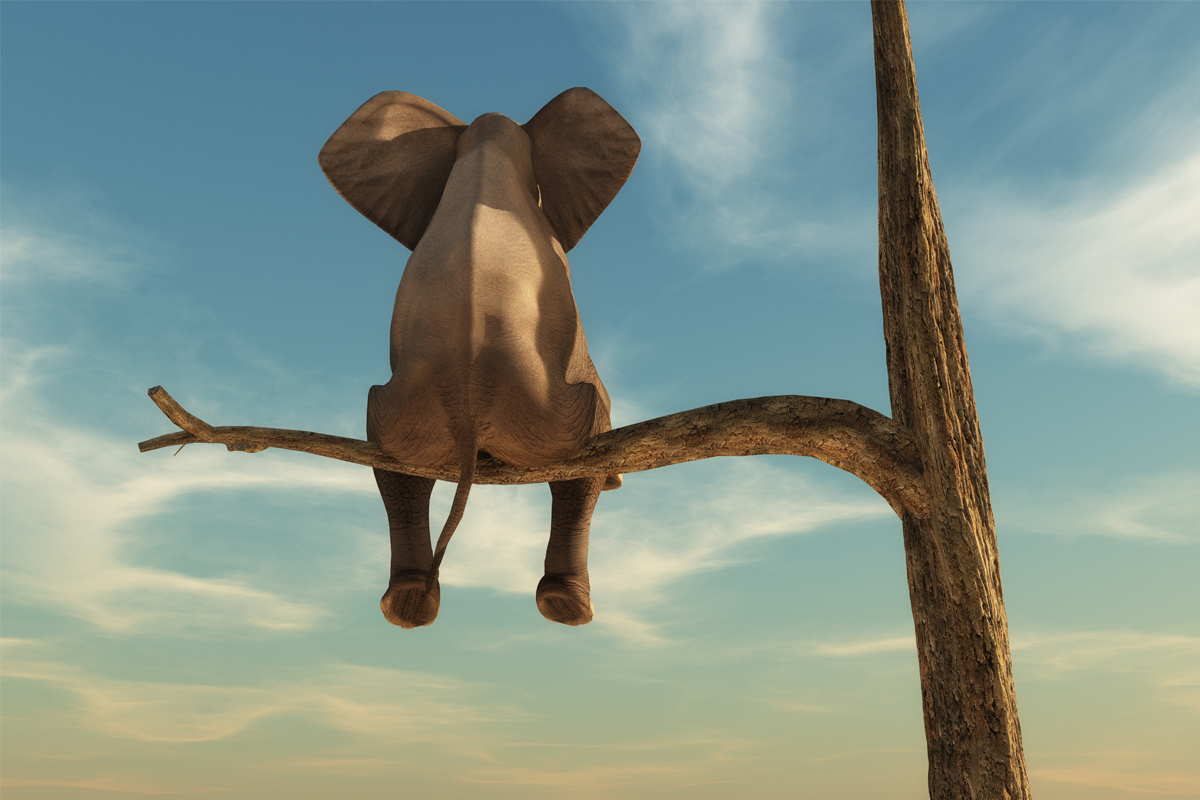The Human Unique Selling Proposition

What is our best feature, as humans? Many people like to talk about this, since we are pretty different from all the other animals. Some don’t even like to accept that we are animals, imagining that we are some special beings above the rest.
Chimp DNA
But there seems to be quite a lot of features that we share with other animals, primarily our primate cousins. We and chimps share 98% of our DNA. That extra two percent accounts for everything we humans have that chimps don’t have.
Pig Hearts
Our cardiovascular systems is very similar to pigs. When testing products designed for human surgical use, pig blood and cow blood are effective substitutes. Most mammals share the same basic structure. Bones, blood, heart, liver and all the other stuff.
What Makes Humans Special?
One of the things that make us special is our big brains. Sure, other animals have big brains, (whales, elephants) but compared to their body size, our brains are pretty big. Our brains got really big really quickly, starting from when we split from chimps. In the millions of years (six or so depending on who you ask) our brains have tripled in size, where chimps haven’t gotten any larger.
Evolutionary Pressure

How does evolution work? It’s pretty simple. Think of evolution as a long series of replication contests. Whoever makes the most copies of themselves wins. Since our brains have steadily gotten bigger, that means that those who had slightly bigger brains had more kids that those with smaller brains.
Replication Winner Example
Suppose there was a mutant caveman who could throw a spear twice as far as everybody else. Since he could kill animals much more effectively, he would have more kids. Or if he had the same amount of kids, his kids would survive more so that the guys who couldn’t toss a spear.
After a long enough time, all the cavemen would be able to toss a spear just as far as the original guy with the extra skill. It’s easy to see why tossing a spear (or running fast or blending into the background like some insects) can lead to winning the replication contest, but what about the brain?
Brain Size Problems
At some point in our evolutionary history, our big brains became a huge burden. All the other animals don’t need nearly as much time as we humans do to go from childhood to adulthood. Horses can walk soon after birth, birds can fly after only a little while (compared to the length of their lives). Fish can swim right out of the gate.
Human Childhood
But when our brains started getting too big, something had to give. Mother Nature had a choice. We could either get much wider hips, but this would mean we would lose a lot of mobility. The only other choice was to have us be born way less than fully formed.
Human Children An Enormous Burden

You don’t need to have kids of your own to understand this. Having kids, even to those who are prepared emotionally and financially can be a terrifying experience. Imagine living in caves and having to hunt food, and not end up being food. All while worrying about little kids running around.
Brain Size Benefit More Than Children Cost
This means from pure evolutionary accounting perspective, the benefit humans got from our big brains is more than the burden of our extended childhood. This seems obvious. We seem to take for granted that having a big brain comes with being a human. That having long childhood comes from being human.
But the question is why? Evolution isn’t some random event. Especially when our brains kept getting bigger and bigger, steadily, over millions of years. There has to be a very good reason why people with big brains not only survived easier but had more kids than those with slightly smaller brains.
Especially when you consider that the bigger our brains got, the longer it took for baby humans to turn into adult humans. Which means that the whole time our brains were getting bigger (and our childhoods were getting longer) the benefit from having big brains was bigger than the costs.
Survival Selection vs. Sexual Selection
We need to make a distinction between these two. One is survival selection, which is the guy who can throw a spear further. Any trait that allows any critter to survive (more than the competition) will be passed on. If you are ten percent better at finding food, for any reason, that trait will be passed on, since finding food will help you survive.
Sexual Selection

In order to pass on any trait to your offspring, you’ve got to get laid at least once. You got to have sex. Which means you’ve got to be desirable to the opposite sex. Imagine a caveman who was absolutely the best hunter on planet earth. Yet he had such horrid body odor he made all the cave girls vomit when he got close. Sure, they’d keep him around because he could slay a wooly mammoth like nobody’s business, but none of the girls would go near him. This poor dude wouldn’t have any kids. The bottom line of evolution is that you’ve got to get laid, at least once.
What Is The Benefit Of The Big Brain?
What we are looking for is the simplest reason to explain our big brain size. What does having a big brain do, to both survival selection and sexual selection, that having a small brain can’t do? It could be that our big brain allows for many behaviors. Tool use, language, long term planning. But just like scientists look for a grand unification theory, why not look for a one “meta reason” that we have such big brains?
Tools
To be sure, making tools might be a benefit. But some guy that makes tools might not have the best luck with the ladies. Suppose the big brutes (and the best hunters) got all the food and all the girls, but they kept the tool guys on a tight leash.
Language
This is certainly a good candidate. Those who could talk a good game would be able to inspire people to follow them. Guys that could talk a good game could woo the ladies. The ladies who could talk a good game could easily talk the best hunters into helping them make babies. Cleopatra is considered one of the most persuasive females, not due to her looks but due to her verbal game.
Planning

To be sure, one needs to be able to read the weather, be able to accurately track the migrating animals that ancient humans depended on. They needed to create effective game plans to hunt the big animals that they did find. They certainly needed to come up with effective battle strategies when they encountered rival tribes.
Story Telling
Many believe human mythology predates agriculture. To be sure, those ancient cave men and women spent plenty times discussing things like thunder, rain, the stars, the seasons. Since it’s generally considered that those ancient pre-agricultural humans are just like us, they certainly needed a reason for everything. Just like us, they asked “why” about pretty much everything, and did their best to come up with an answer.
This meant they likely looked up at the stars, and didn’t just shrug their shoulders and figure that’s just the way it was. They must have had some guys that were pretty good at spinning tales and keeping people entertained at night.
Early Religions
Everybody dies. Those guys back in the day were likely pretty tight. It would have been like Band of Brothers, but for an entire lifetime. So when people died unexpectedly, they would probably leave behind a lot of sad family and friends. If they were anything like us, they would need to imagine some kind of “better place,” or some kind of system that let them carry on despite losing their best friends, fathers, husbands, wives, daughters, etc.
Big Brain Covers All These

Having a big brain would make all of these things easier. Consider any given tribe, and consider how the members would be ranked among all these qualities. It’s pretty easy to imagine how somebody who was highly skilled in all of these areas (tool making, planning, language, persuasion, leadership, storytelling, religious leadership, etc.) would be considered pretty high up in the tribal leadership.
High Status Means More Kids
One thing that’s clear in the chimp world is that high status means more sex. The higher the status of the males, the more kids they have, passing those high status genes (or collection of genes). It’s not a stretch to imagine humans operated the same way. So we can see how having a big brain helped survival selection and sexual selection. In the ancient world, having a big brain got you both paid and laid.
Meta Skill
Now we’re ready to describe the meta skill that would describe all these specific skills that having a large brain would allow one. You’d be better at making tools. You’d be better at planning. You’d be better a organizing the hunt. You’d be better at dealing with difficult emotional issues like unexpected deaths. You’d be better equipped to handle “bigger than us” type ideas like stars, thunder and other things primitive people associated with “the gods.”
Hallucination – Meta Skill

All of these skills involve thinking about things that don’t exist. Thinking about them in the abstract, yet being able to accurately describe them to others. We can imagine that within any one tribe, big brains would allow to not only hallucinate, but to convey that hallucination through language in a way that enlists the assistance of the tribe members to either make that hallucination a reality (hunting, tool making, migrating) or using that hallucination as a motivational tool (story telling, anything related to the gods or the afterlife).
Tool Making
Tools can be copied, but the first tools have to come from somewhere. And when looking for various parts to turn into tools (from their raw state) requires a hallucination intelligence. You glance up at the trees, glance down at the rocks, and imagine combining the raw materials together into a finished tool.
Language
According to Chomsky, all human language includes recursion. The sentence, “The rock is next to the tree” is separate from the sentence, “The river with the fish is down the hill.” Yet with recursion we can include one sentence in the other:
“The river that has the fish is past the rock that is next to the tree, then down the hill.”
The more you can handle difficult ideas in mind while speaking (the better you can hallucinate) the more adequate of a speaker you’ll be.
Planning

This requires imagining many possible outcomes, and considering all the necessary things that must be done. Ancient tribes needed to anticipate good things to take advantage of them, and anticipate bad things in order to avoid them. The better ancient people could hallucinate various futures and plan accordingly, the better off they were.
Storytelling
Hunting is scary and dangerous, regardless of whether you need to do it or not. Scared hunters are not as effective as confident, motivated hunters. One task of ancient storytellers is to tell the tribe stories that would allow them to see themselves in the role of the hero, and recall the stories as they were hunting.
Being an effective storyteller meant you needed to always understand the fears and hopes of your people, and be able to create effective stories that paced these. They had to be interesting and exciting, but still able to hold the attention of many people in a way they could imagine themselves as the protagonist, and their prey (or any rival tribes) as the antagonists.
Religion

Nobody likes it or can easily accept it when a loved one die. Nobody likes to think about what lies beyond, especially if this life means nothing. Effective religions were designed to give life meaning, even in the face of bad things that continue to happen. If nightly stories were designed to motivate people to face the daily harsh reality, religion might be seen as the “meta story” that helps ancient people see their lives as meaningful.
The richer the tribal leaders could adequately describe the gods (the better and more believable the hallucination) the more compelling and comforting the religious imagery would be.
Ancient Art
Cave paintings, jewelry, all required taking something abstract from the imagination and making it real enough to be recognizable and inspiring to the observer. Art is essentially a created hallucination, and the better the original hallucination, the more strongly the artist can hold that specific hallucination in mind while creating the art, the more effective the finished product would be.
Modern Hallucinations
All modern success can be seen through the lens of a hallucination skill. All business built from scratch were once ideas in the mind of the creator. Consider the ability to hallucinate a specific image in mind long enough to be made in the reality we live is as the meta skill above all else.
Mathematics

The entire field of mathematics, upon which all science and technology is based, is a richly held hallucination. Once upon a time, negative numbers were thought to be evil, as there is no real evidence of negative numbers in the real world. But as mathematicians slowly convinced the world the “realness” of their hallucinations, mathematics, and thereby all science, has progressed accordingly.
Leadership
Hallucinations is just as necessary for modern leaders as it was for ancient tribal leaders. Whoever can envision the most compelling idea, and convince others of the validity of that hallucination will succeed. Whoever cannot, will not.
Public Speaking
Public speaking of any kind is essentially describing abstract ideas in an interesting and persuasive way that others will accept that shared hallucination as a valid recommendation. The better one can make any idea compelling and tangible, the better a speaker they will be.
Science

Much of science has been discovered through hallucinations. Einstein came upon his idea of general relativity by imagining (hallucinating) what it would be like to fall off a window cleaning scaffold. He imagined what would happen if the speed of light was constant in all reference frames, and that led to his theory of special relativity. One of his famous quotes is “Imagination is everything.”
Personal Goal Setting
If you cannot imagine a better future, you cannot create it except through accident. Those who can create a future for themselves, hold it strongly in mind, and make it compelling will achieve them. Your ability to set and achieve goals is strongly associated with your ability to hallucinate.
How To Improve Hallucination
The stronger you can create a mental image, hold it in mind, and describe it to others, the more successful your life will be. Most people, however, believe they cannot do this. That they cannot create visualizations in their mind. They close their eyes and see nothing but darkness. “I can’t visualize!” they cry. But this is impossible!
Visualization Test

Do you recognize your friends when you see them? Think of it this way. If you saw a photo with ten strangers and a friend or family member, would you be able to recognize them? Of course you would. How do you do this? You first scan the picture. Then you automatically (and very quickly) scan your memory, and you come up with the recognition of your friend, and the non-recognition of everybody else.
The only way to do this is you have a stored mental image of your friend somewhere in your brain. This is the only way you could come back with that sense of “familiarity.” However, since this is done on the unconscious level, most think that we “can’t visualize.” You certainly can, you just need to do it consciously.
How To Practice?
Without question, Image Streaming is the most effective way improve your skills of visualization and directed hallucination. With just a few minutes of Image Streaming per day, you will improve every area of your life that can be improved via directed hallucinations, which is plenty!
Click Here To Learn Image Streaming (Blog Post – No $$ Required!)
Learn More

Mind Persuasion has plenty of books and courses all designed to help you think better, plan better and create a much better life.
Mind Persuasion Books
Mind Persuasion Courses